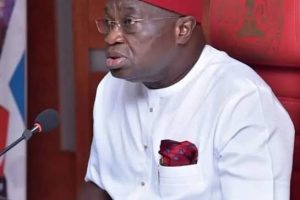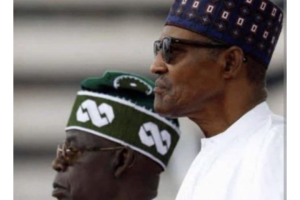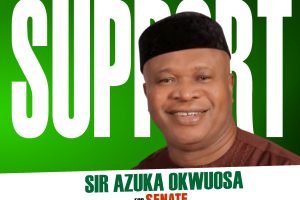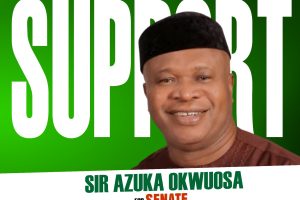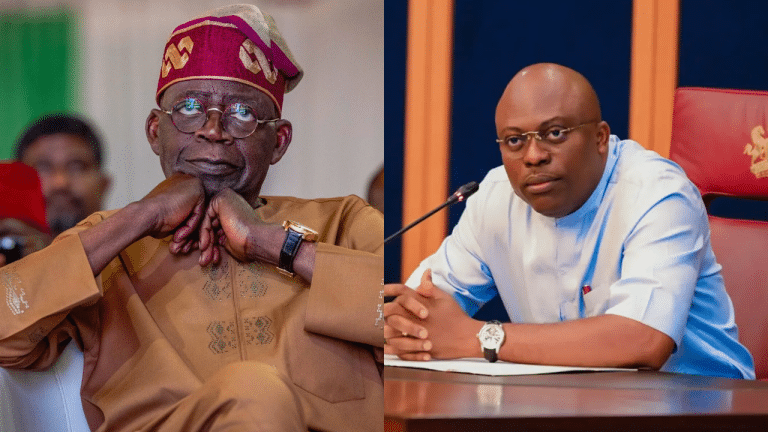
Multiple insiders say the presidency has applied relentless pressure on suspended Rivers State Governor Siminalayi Fubara, ultimately compelling him to pledge allegiance to the ruling All Progressives Congress (APC).
The manoeuvre, they contend, is part of President Bola Tinubu’s broader plan to lock down strategic states ahead of the 2027 polls and blunt any serious opposition challenge.
From simmering feud to secret London talks
According to sources who spoke with SaharaReporters, Abuja’s campaign against Fubara escalated over several months—using what they describe as institutional intimidation, legal salvos, and behind‑the‑scenes arm‑twisting. The tipping point, they say, was a confidential meeting in London, the first in‑person encounter between Tinubu and the embattled governor since the presidency announced emergency measures in Rivers and orchestrated the suspension of both Fubara and his deputy, Ngozi Odu.
One source characterised the London session as “a political ultimatum dressed up as reconciliation.” Fubara, the insider claims, was told that his only path back to office ran through the APC, and that continued resistance would mean permanent removal and potential criminal prosecution.
The reported deal
Under the alleged terms:
- Re‑instatement with strings attached – Fubara would be returned to Government House, but key budget lines and the state’s internally‑generated revenue would fall under joint oversight by Abuja‑aligned power brokers.
- Defection to APC – The governor would publicly declare for the ruling party, giving Tinubu a symbolic and strategic win in the oil‑rich Niger Delta.
- 2027 firewall – By neutralising Rivers as a potential opposition launching pad, the presidency hopes to minimise electoral headwinds linked to growing public anger over inflation, insecurity, and subsidy removal.
“The fear of 2027 is real,” one official familiar with the talks said. “Internal polling shows discontent climbing. The calculus is simple: co‑opt every heavyweight state by state, or risk a coalition of angry voters.”
Unprecedented humiliation?
Veteran political observers note that federal‑state showdowns are not new, yet the scale of pressure described here is remarkable. “Rivers has been reduced to a bargaining chip,” another source lamented. “We’ve seen governors defect before, but never after being suspended, stripped of security details, and left in limbo until they capitulated.”
Historians point out a few parallels the impeachment drama of Plateau’s Joshua Dariye in 2006, for instance but even those cases stopped short of a formal emergency proclamation.
Wider implications
- Federal overreach debate: Critics argue the episode underscores how easily constitutional safeguards can be bent by the centre, reviving calls for clearer limits on presidential emergency powers.
- Opposition morale: If a sitting (though suspended) governor can be muscled into crossing carpet, smaller opposition figures may reassess their own staying power.
- APC internal dynamics: Absorbing Fubara could ignite turf battles within the party’s Rivers chapter, where long‑time Tinubu loyalists already eye 2027 tickets.
What to watch
- Official confirmation – Neither Aso Rock nor Fubara has publicly acknowledged any defection. Statements—or conspicuous silence—in coming days will be revealing.
- Legislative follow‑through – Re‑instatement requires either a court order or legislative volte‑face. How quickly that machinery moves will signal the depth of the deal.
- Budget control mechanisms – Civil‑society groups say they will track any new federal “oversight committees” inserted into Rivers’ spending pipeline.
If the reported pact holds, President Tinubu secures a high‑stakes win in the Niger Delta, tightening his electoral map. But the methods alleged emergency declarations, punitive suspensions, and coercive negotiations abroad raise fresh questions about the health of Nigeria’s federal democracy and the lengths incumbents will go to retain power.


